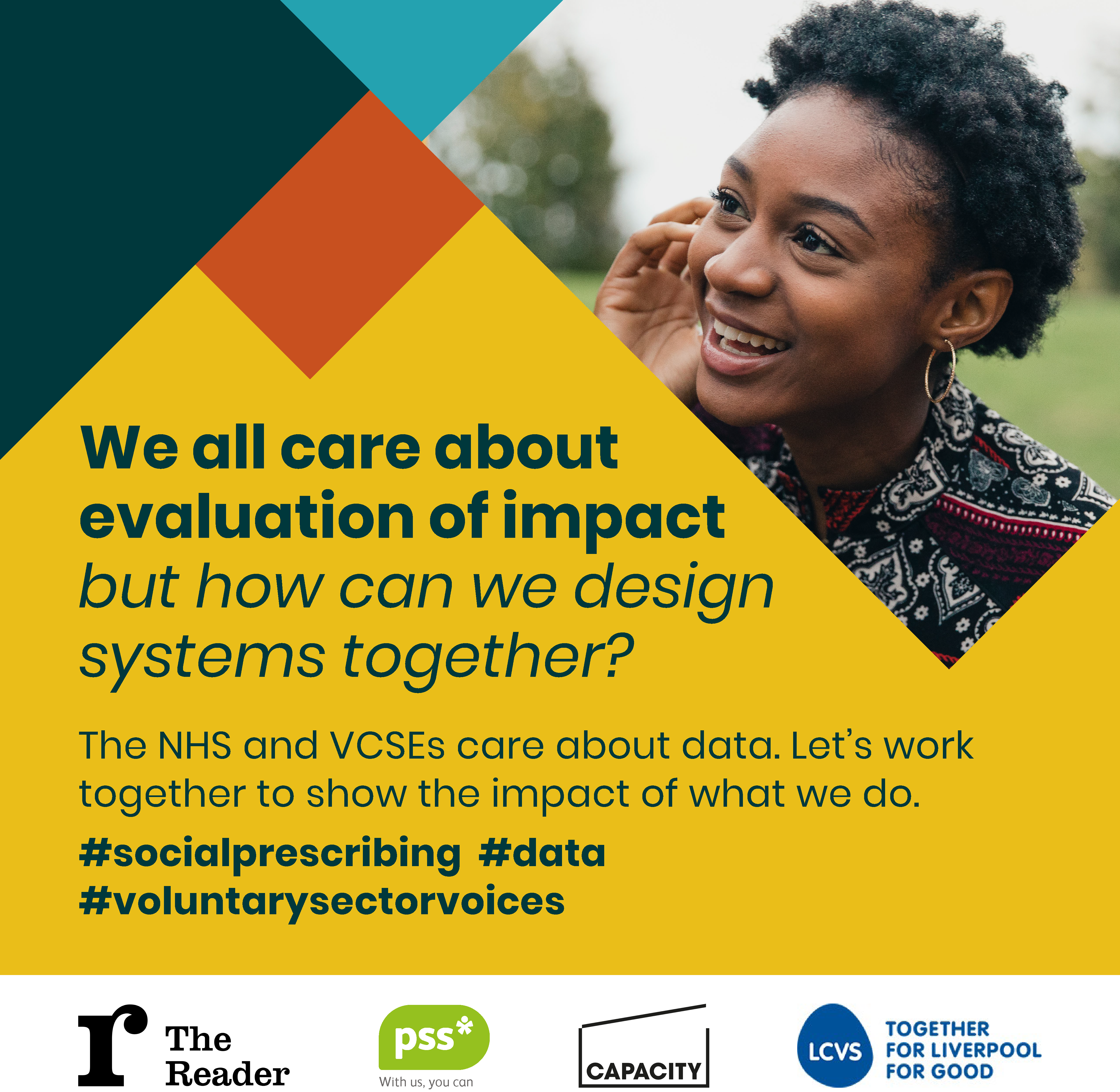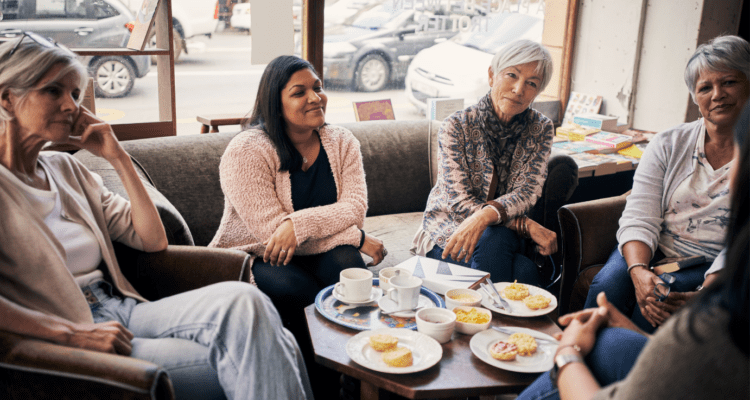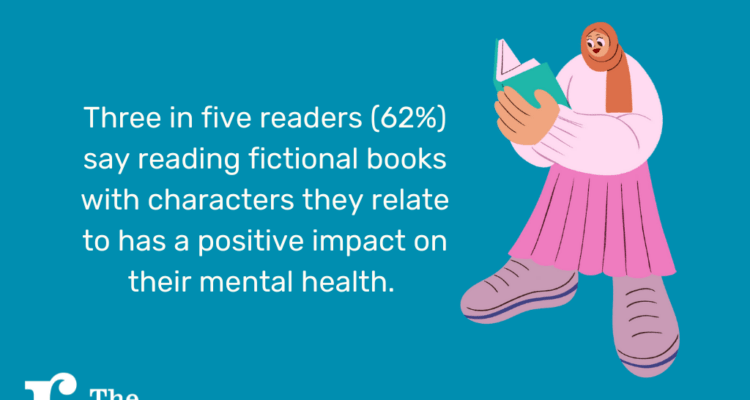Ready and waiting: what the voluntary sector can do for social prescribing in Liverpool
New report calls for healthcare sector to harness VCSE potential to make the most of social prescribing in Liverpool
At the heart of every community, there’s a huge diversity of organisations helping people to live well in their neighbourhoods. Often, these are volunteer-led groups and enterprises operating with limited resources. However, these organisations – usually referred to as VCSEs (Voluntary, Community and Social Enterprises) – are powerful hubs of action, run by passionate people, with a huge amount of local knowledge and a real desire to change lives.
A new report commissioned by LCVS – working in partnership with Capacity – and published today by The Reader and PSS highlights the vital role that VCSEs have to play in making social prescribing work in Liverpool. The collaborative approach underpinning the report demonstrates the impact that’s achievable when VCSEs, Primary Care Networks, community members and wider partners work together.
Social prescribing is a key component of the NHS Long Term Plan. It aims to help people to have greater control over their own health and wellbeing by connecting them to social activities in their communities, such as volunteering, gardening, reading, cookery and sport, which are typically delivered by VCSE organisations.
The insights and information contained in the report were gathered as part of a 12-month project called ‘South Liverpool Connect’.
Completed just as Covid-19 was emerging, the project brought VCSEs, local Primary Care Networks and communities in South Liverpool together to explore and test the barriers to enabling social prescribing. By understanding the barriers and potential at a local level, the aim was to inform the wider debate about how sectors can work together to help patients make the most of existing community services to maintain their wellbeing, reducing pressure on NHS services.
The report found that while all partners were committed to making social prescribing a reality, there are still barriers preventing patients from making the most of the VCSE support and services already on offer in South Liverpool.
More effective communication about what’s available, transport and support to encourage people to attend activities, and adequate funding which would allow VCSEs to develop high quality and sustainable services were all found to be in need of improvement if the city is going to make the most of the social prescribing opportunity.
A VCSE Task Group, including Torus Foundation, Growing Sudley CIC, Homecooked CIC, PSS and The Reader, that worked together to explore barriers and ideas also highlighted the need for shared goals and accessible systems around data sharing between primary care referrers –such as GPs and link workers – and VCSE providers.
Emma Lord, Development Manager at Capacity, said “Both the findings of this report, and the process we went through to get to them, shine a light on the potential that can be unlocked when there’s closer engagement between primary care professionals, such as GPs and link workers, and their patients with local VCSE organisations.
“Clearly, there are challenges that we still need to address, but one thing that stands out is that greater collaboration between VCSEs and PCNs on social prescribing will help to support better outcomes for patients.”
Liz Lamb from Healthwatch Liverpool, which links people to groups, activities and services to improve their health and wellbeing, said “We welcome the publication of this report as an opportunity to re-examine some of the challenges around social prescribing and work towards new solutions.
“We’ve been aware for some time that people aren’t always aware of the many fantastic services that are available to them locally and the report clearly shows this. The findings around some of the barriers that people have to accessing services demonstrate why the new Wellbeing Liverpool website, which went live recently, is needed and how it will help to have a positive impact in the future.”
Lucy Dossor from Growing Sudley CIC, said “As a small, community-focused organisation we believe in the power of action and collaboration. Participating in this project has given us a welcome opportunity to add our voice to the ongoing dialogue about social prescribing and share our insights into what needs to be done to make it work for local people.”
Zoe Gilling from The Reader, concluded “We’re delighted to have had the opportunity to lead this project and to work with so many brilliant local organisations that, just like The Reader, are already providing activities that deliver measurable health outcomes.
“We hope that the findings of this report will pave the way for greater cross-sector collaboration on social prescribing in the future because it’s evident that VCSEs, healthcare and wider partners, and patients all have valuable insights and experience to share. Acting on them is what’s needed if we’re going to develop the systems that will fulfil social prescribing’s potential to transform NHS services and ensure our Liverpool community can thrive.”
Click here to read the full report.

Share
Related Articles

Give a vulnerable child the joy and lifelong benefits of reading this Christmas
This Christmas, we're calling for donations to help us reach a £10,000 festive fundraising target. Funds raised will support the…

Community based solutions are needed to support the NHS to deal with mental health crisis
Geetha Rabindrakumar, our Director of Partnerships, Communities and Impact reflects on our research on reading habits and mental health and…

New research on what books can do for our mental health during a cost of living crisis
Our new survey of 2,000 people across the UK* reveals: Nearly two-fifths (38%) agree that they can relate to literature…


